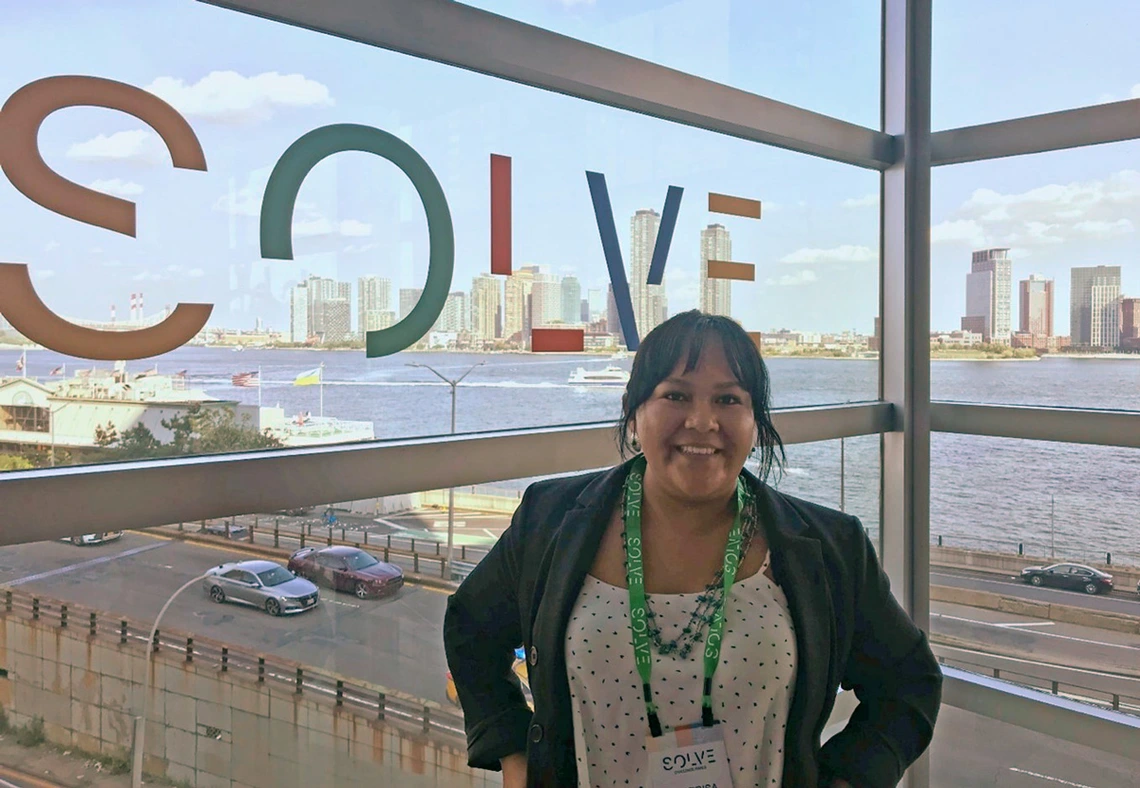Dr. Valerisa Gaddy Named 2022 MIT Solve Fellow

WRRC post-doctoral researcher Valerisa Gaddy has been selected as an MIT Solve Fellow for 2022-2023. Her tech-based solution, "IRRIGaTE: Irrigation Resources Reaching Indigenous Growers and Tribal Entities” addresses the difficulties of science and policy communication between Tribal farmers and non-tribal policymakers through a multimedia platform. The highly anticipated platform will be released in December 2022 and is already generating buzz as Tribal Business News reports.
Gaddy’s project is one of 40 solutions selected for this year’s Global Challenges which had over 1,100 solutions submitted. In September, Gaddy traveled to New York City, NY to receive the award and pitch her solution to potential investors to scale IRRIGaTE.
The MIT Solve is a marketplace for social impact innovation. Through open innovation Challenges, Solve finds incredible tech-based social entrepreneurs all around the world. Solve then brings together MIT’s innovation ecosystem and a community of Members to fund and support these entrepreneurs to help them drive lasting, transformational impact.

